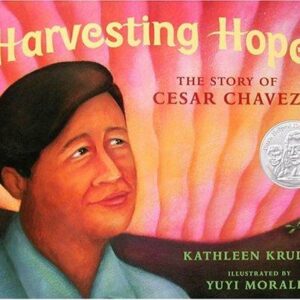Complex and Traumatic Loss
$95.00
| Title | Range | Discount |
|---|---|---|
| Trade Discount | 5 + | 25% |
- Description
- Additional information
Description
Description
In this needed practice and training guide for all mental health professionals, Froma Walsh presents a research-informed, resilience-oriented approach to help individuals, couples, and families who experience profound loss. Walsh guides therapists to understand and address the impact of complicated and traumatic deaths in relational systems and social contexts. She provides core principles and illustrative examples to foster healing and adaptation; help clients mobilize vital social, cultural, and spiritual resources; and find pathways forward to live and love beyond loss. Essential topics include death of a spouse, parent, child, or sibling; ambiguous and disenfranchised losses; death by violence, suicide, or overdose; collective trauma; and reverberations of past loss in life pursuits, other relationships, and across generations.
"With clinical acumen and insight, Walsh explores the deeply personal, intricately social process of grieving life-altering loss and reexamining one’s life narrative in its wake. Moving beyond the common preoccupation with stages and symptoms of grief, Walsh provides a far subtler view of the significance of loss for family systems. She seamlessly weaves theory and practice to conceptualize and promote resilience in the face of often traumatic life transitions. The result is a treasure trove of clear clinical guidelines, satisfyingly nuanced and complex case studies, and coherent synthesis of research and practice wisdom. This book is the magnum opus of one of our field’s most fertile, sophisticated, and visionary minds. I recommend it enthusiastically to any practitioner with a passion for accompanying grieving families with clarity and creativity as they find new meaning in a changed world."–Robert A. Neimeyer, PhD, Director, Portland Institute for Loss and Transition
"This book is a triumph. Walsh is a wise guide for clinicians working with individuals, couples, and families suffering from the death of loved ones. Based on the latest research, and weighing in on current debates, the book draws on decades of clinical practice related to loss and bereavement. Walsh clearly demonstrates how a resilience-oriented systemic approach can help people 'bounce' forward in their lives, even in the face of complicated and traumatic losses. While covering an enormous scope of tragic circumstances, the book is nonetheless hopeful. Walsh’s conviction that resilience is possible gleams on every page. The book is a gem; it will be a go-to resource for years to come."–Kaethe Weingarten, PhD, Director, The Witness to Witness Program, Migrant Clinicians Network
"It seems strange to call a book uplifting when the topic is loss and excruciating grief–but this stunning book shines new possibilities of hope and healing on the heaviness of suffering. In this brilliant, beautifully crafted, and sensitive work, Walsh empowers the reader with crucial concepts and essential practice applications. Universals of grief are attended to, but so are the nuances of sociocultural locations of race, class, religion, or migration. This indispensable resource will be invaluable for courses and clinical training. Professionals will return to it again and again for guidance in helping others, and to cope with their own natural avoidance in attending to unbearable losses.”–Celia Jaes Falicov, PhD, author of Latino Families in Therapy "Walsh brings a lifetime of clinical wisdom and scholarship to this profound discussion of loss, its vicissitudes, and its relation to treatment. She holds both a keen awareness of the effects of traumatic loss and a strong belief in the healing power of relational resilience. The book provides a clear understanding of varieties of loss and how to work with each of them in therapy. It is wonderfully written, moving seamlessly between conceptual information, clinical vignettes, and poignant personal stories. Anchored in a systemic view, the book transcends schools of psychotherapy to speak to how to be therapeutic in the presence of loss–and, ultimately, to the heart of being human. Add this to your list of top ten books about the practice of psychotherapy. It should be a core text in every psychotherapy graduate program."–Jay L. Lebow, PhD, ABPP, Clinical Professor and Senior Therapist, The Family Institute at Northwestern University
"Walsh writes pointedly about the need to see grief as a varied and complex adaptation to loss, rather than as a binary of normal versus disordered. She focuses on applying therapy based on human resilience and growth. This book will enlighten students as well as veteran therapists who may not be aware of the many recent updates in this field."–Pauline Boss, PhD, author of Ambiguous Loss Froma Walsh, MSW, PhD, is the Mose and Sylvia Firestone Professor Emerita in the Crown Family School of Social Work Policy and Practice and the Department of Psychiatry, Pritzker School of Medicine, University of Chicago. She is also Co-Founder and Co-Director of the Chicago Center for Family Health. Dr. Walsh is an internationally respected clinical scholar and a foremost authority on family resilience. Integrating developmental, relational, sociocultural, and spiritual perspectives, her resilience-oriented systemic approach with individuals, couples, and families fosters healing and positive adaptation. She is past editor of the Journal of Marital and Family Therapy and past president of the American Family Therapy Academy. Dr. Walsh is the recipient of many honors for distinguished contributions to theory, research, and practice, including the Presidential Citation from the American Psychological Association and awards from the American Family Therapy Academy, the American Association for Marriage and Family Therapy, the American Orthopsychiatric Association, and the Society for Pastoral Counseling Research. She is a frequent speaker and consultant internationally, and her books have been translated into many languages.
Clinical psychologists, social workers, couple and family therapists, mental health and pastoral counselors, psychiatrists, and psychiatric nurses. May serve as a text in graduate-level courses across the mental health disciplines, as well as human development and family studies courses.
I. Overview
1. Facing Death and Loss: The Human Predicament
2. Working with Complex and Traumatic Loss: A Resilience-Oriented Systemic Approach
3. Cultural and Spiritual Influences in Suffering, Healing, and Resilience
II. Death, Dying, and Loss: Individual, Couple, and Family Challenges
4. Approaching the End of Life: Challenges and Resilience
5. In the Wake of Loss: Fostering Healing and Resilience
6. Loss Across the Family Life Cycle: Death of a Spouse, Parent, Child, Sibling
III. Complex and Traumatic Loss Situations
7. Ambiguous, Unacknowledged, and Stigmatized Losses
8. Loss of a Cherished Companion Animal
9. Violent and Traumatic Deaths: Fatal Accident, Homicide, Overdose, Suicide
10. Addressing Complex Relational and Transgenerational Dynamics: Reverberations from the Past
11. Collective Trauma and Loss: Fostering Individual, Family, and Community Resilience
12. The Shared Human Experience of Loss: Professional and Personal Influences in Our Therapeutic Engagement
Appendix: Suggested Resources and Readings
References
Index
Additional information
Additional information
| Dimensions | 1 × 6 × 9 in |
|---|










